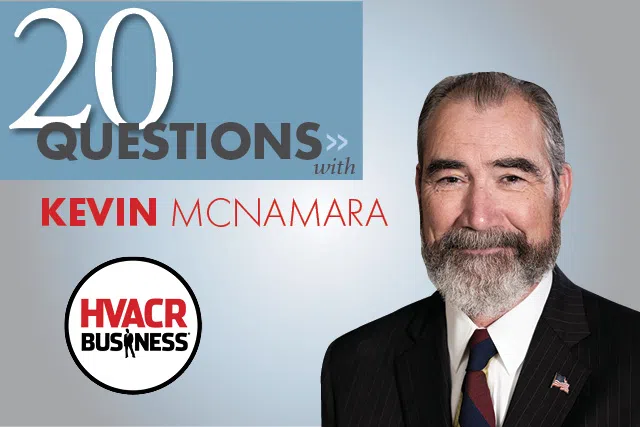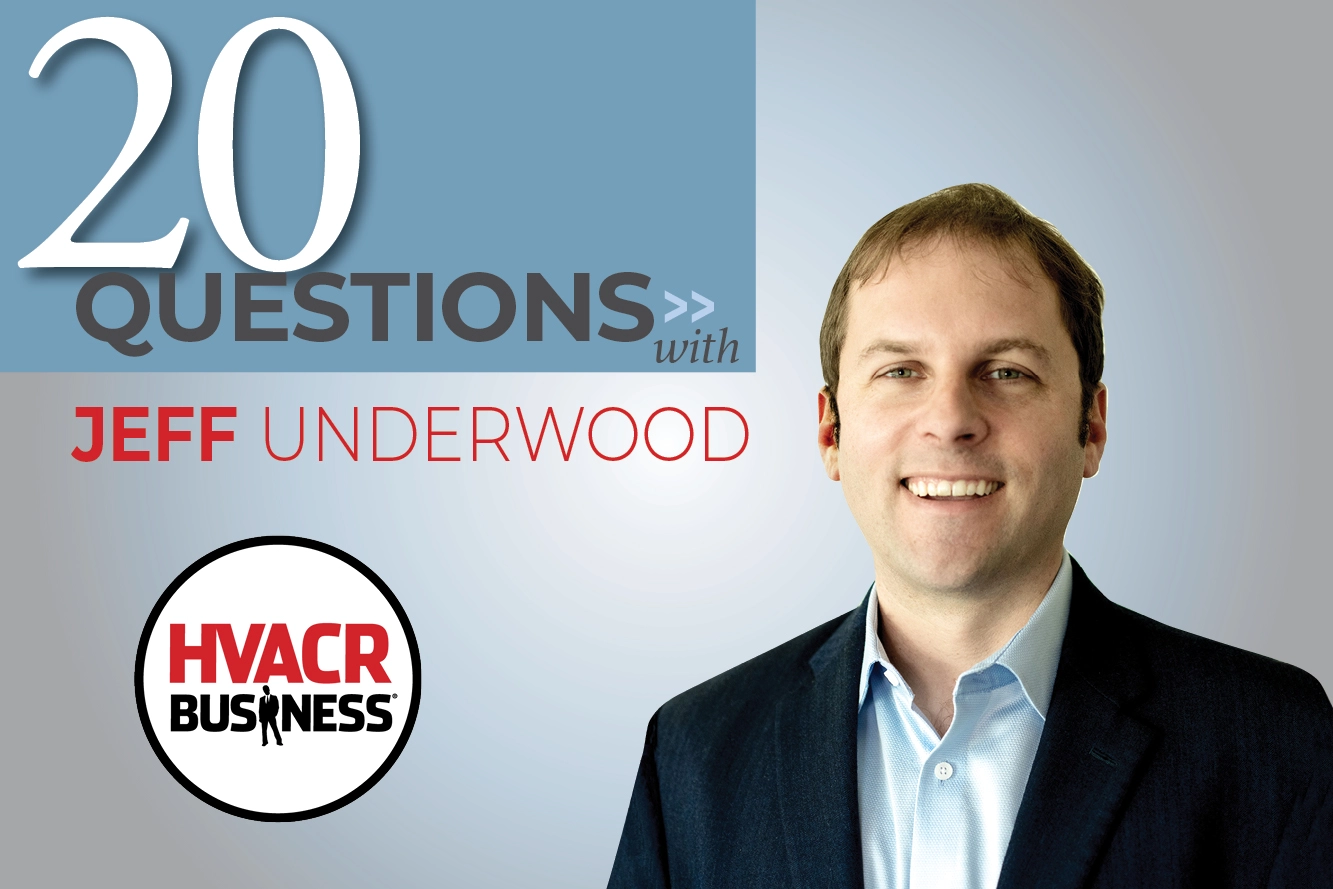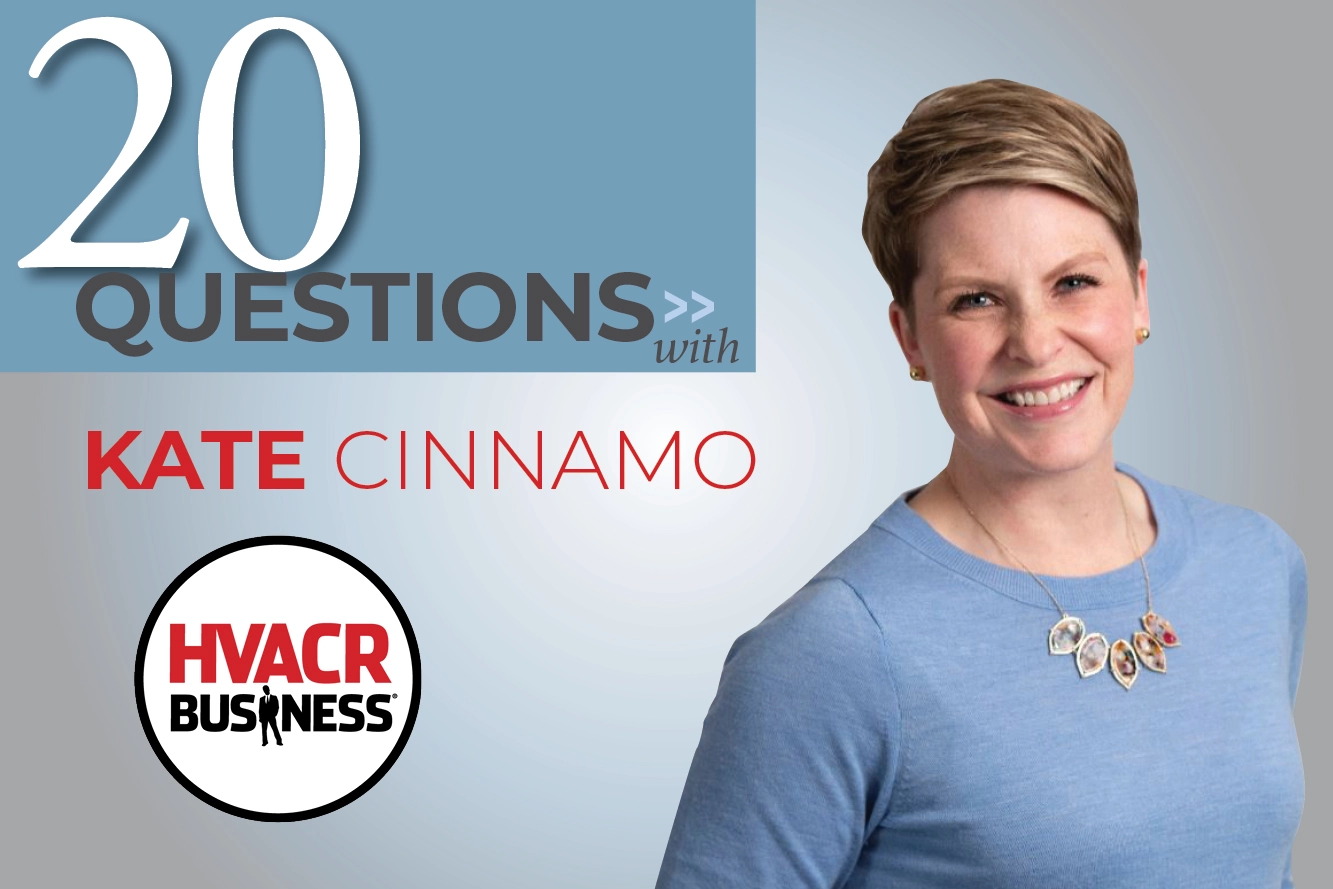We sat down with Kevin McNamara, chief operating officer of Climate Control Group, a diverse collection of HVAC products and solutions that includes ClimateMaster, International Environmental (IEC), ClimateCraft and ClimaCool. McNamara discussed a short-lived retirement, employee retention and being a leader.
1. Where do you spend your weekends?
Golfing for sure. When I was retired, it was pretty much every day except Monday, and that was because the club was closed. It was a great time to relax, get healthy and take a step back from everything and assess things.
2. How long did retirement last?
Not very long. I retired from LG in July, after turning 60 last February, and was enjoying my time on the golf course. But this is a small industry and everybody knows everybody. Pretty soon, I was in discussions with NIBE about coming on board at Climate Control Group.
3. Where are you from?
I’m originally from New York and I went to school at Niagara University in upstate New York.
4. Where did you get your start?
I started back in the 1980s working for Honeywell in New York. And then over the course of my career, I worked at York in Atlanta. Then, I was a regional manager in Houston, traveling all over the Western United States for York, all on the service side. It was a lot of fun, quite frankly. We had a really great team during interesting times.
5. Where did you go from there?
Subsequently from York, I worked at Trane and then Carrier for a number of years before going on to LG. I’ve just been very lucky. I’ve had a chance to work in different companies in different roles and have different exposures to businesses and to different markets, especially markets at different times.
6. How do you explain your longevity?
As the business cycles go around, you have to be able to adopt new ideas and adapt to the changes, being agile and flexible and seeing the future before it happens.
7. What made you come out of retirement?
Well, it’s a combination of things. The first is that the technologies under the umbrella of the Climate Control Group, are really exciting and address many of the issues that face us today and will face us into the future. When you look at decarbonization, when you look at filtration and ventilation and in buildings and in spaces, and then also the renewed and deeper focus on healthy buildings, all fit into this portfolio of products and the channel that represents us across the United States.
8. What’s new with Climate Control Group?
In each one of the businesses, you’re going to see significant innovations roll out over the next six, 12, 18, 24 months in the entire product portfolio. More importantly, there’ll be more innovations and more things that we’ll be able to provide as far as efficiency is concerned and modularity, as far as products are concerned. And then also the applications that we’ll be able to do.
9. What’s your greatest responsibility?
To provide the best possible work environment for all of our employees, that we are the preferred employer of choice — the place people want to come to work and establishing that in the community and in the industry.
10. What do you hope to accomplish?
The biggest thing is leveraging the power of these four companies in the marketplace becomes really critical over the longer term, so that we’re able to provide more options for buildings and for architects and for engineers to look at that we have in our portfolio.
11. What aspect of business do you enjoy most?
When you put together a great team. When you work with a great team and have great people, and those people in turn develop and recruit great people that work for them and you just have this really dynamic organization, that’s extremely gratifying to me and that’s a lot of fun.
12. Why is that important?
If you don’t embrace people and they don’t embrace the challenges that you have, it’s going to be very difficult to be successful.
13. What is the key to winning in business?
To say there’s one thing is very hard. First of all, you have to be honest. You have to be trustworthy and you have to be an organization that backs up and does what it says it’s going to do — integrity, honesty, truthfulness and trustworthiness are all important keys.
14. How do you like to communicate?
Talking. I’ve never been a big fan of email, PowerPoint or things like that … I like to be accessible on the telephone. The ability to using text messaging has been helpful at times when you can’t get somebody on the phone, at least to be able to work with them. But sitting around a table or on a call or being able to talk with people is important because then you really can fully understand the message.
15. What’s the biggest challenge in the industry?
The single biggest challenge in the industry is finding great talent or qualified talent to go to work for you. It’s important that when contractors are recruiting, that they not only think about hiring, but how they are going to retain the people they hire. We’re going to have to go to different places to try and find talent.
16. What attracts people to some companies and not others?
Companies that have good culture will attract better people. A company with a good culture, with the right people will attract better candidates and will also retain better people. When you don’t have a good culture, obviously, it makes it much more difficult to retain people and it makes it very hard to attract people.
17. What would you tell contractors?
Put a big hug on the people who are really doing a great job for you, and don’t let anybody take them away from you. Train and invest in them every day.
18. Who is the last person who impressed you?
Gerteric Lindquist, the CEO and managing director of NIBE Industrier AB. When I was meeting with NIBE, his enthusiasm, passion, business acumen, concern for people and the environment was like nothing I had ever heard from a leader at his level before — he was genuine, authentic — which is rare in the world today and in this industry. He truly has a global view and is a man of action not words.
19. What is your leadership philosophy?
A good leader — I won’t say a great leader — but a good leader recognizes he or she doesn’t have all the answers. A good leader is willing to be humble and accept input from other people around him or her and to use all of the information they can, always be in a learning mode and not think they have all the answers. A good leader will ask a lot more questions, if you will, than give answers.
20. What’s the best business advice you’ve ever received?
From my uncle: You are never as good as you think you are, so stay humble and honest. Success is fleeting. People are what matter; they are the ones who share in any success you have so be thankful for them and share your accomplishments and achievements with them.






